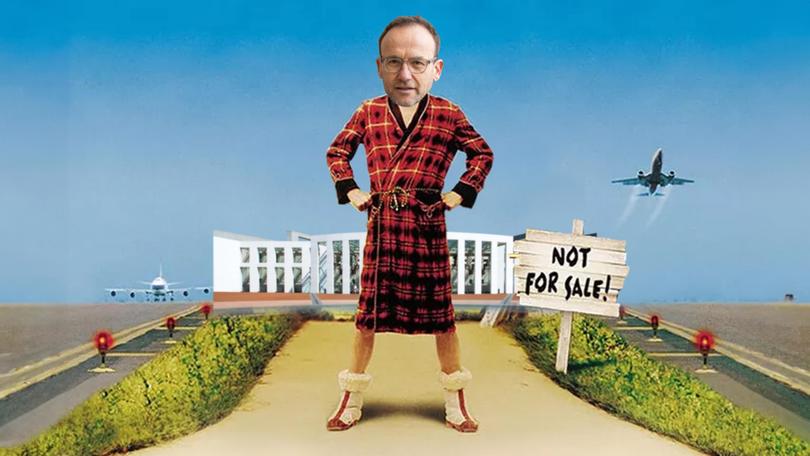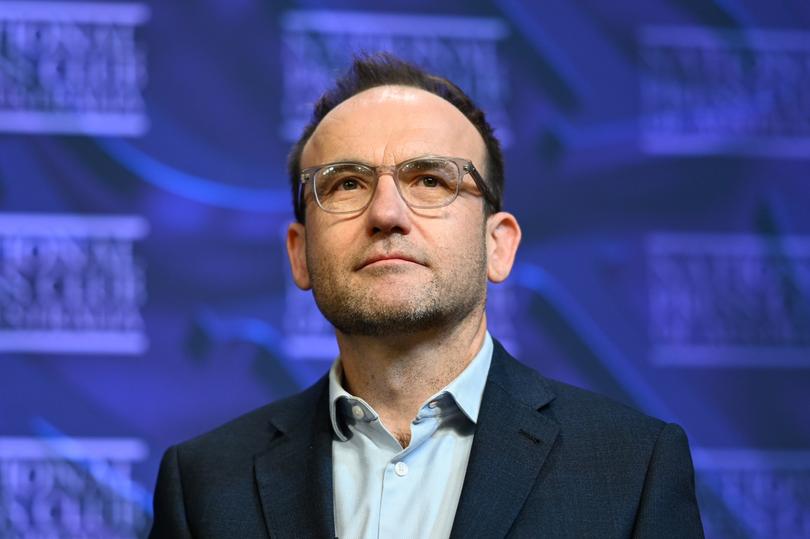NICOLA SMITH: Greens leader Adam Bandt’s hubris is misplaced given changing political landscape
NICOLA SMITH: Blinkered Greens leader Adam Bandt remains convinced his party will hold the balance of power despite the changing political landscape.

Greens leader Adam Bandt is not short on grand ideas, from how to fix the dire housing crisis to making Australia “a force for peace” in a dangerous world.
But when he presented his election pitch on Wednesday, he spoke with the freedom of a man who will never have to make the tough calls and with the hubris to believe his party holds the balance of power when the country’s political landscape has dramatically shifted.
In his address to the National Press Club, Mr Bandt announced his push to reform negative gearing and end capital gains tax discounts on investment properties to make the housing market more equitable at the centre of his demands if the Greens become kingmaker in a minority government or hung parliament after the May 3 Federal poll.
Sign up to The Nightly's newsletters.
Get the first look at the digital newspaper, curated daily stories and breaking headlines delivered to your inbox.
By continuing you agree to our Terms and Privacy Policy.Mr Bandt stuck to the Greens’ best hits script on taxing the billionaires and big corporations – singling out the super profits of coal and gas corporation – to applause from a friendly audience.

In the question-and-answer session that followed, he called US President Trump a “dangerous demagogue” in an appeal to keeping Australia out of his “next war of aggression” that will play well to the Greens’ base and tap into wider public anxiety about developments in the White House.
“We’re watching the world being burned down by powerful men. We just didn’t know they would be such losers,” he said to laughter, paraphrasing Guardian journalist Rebecca Shaw.
“People are holding their loved ones tight. It’s like people are flicking through news articles in their feeds because it is too distressing. People are thinking about their future. And my message would be, you’re not alone,” he said.
The Greens’ leader may have struck a popular note, but vibes about promoting Australia as a “force for peace” and “de-escalating tensions in the world” are not a viable alternative to withdrawing from AUKUS when the realpolitik of deterrence kicks in.
Equally, his housing plan was immediately rejected by the Government he aspires to hold over a barrel.
Education Minister Jason Clare ruled out any moves to revisit property tax concessions before Mr Bandt even took to the stage. “What we want to do is build more homes,” he said.
Mr Bandt remains bullish that “this will be the election that the penny drops for the major parties” that they can no longer dictate the rules of the game.
And while he is right that “about a third of the country is voting for someone else,” with the rise of the teal independents, they are not necessarily voting for the Greens.
In an electorate of some 45 per cent of soft voters, a loss for the two major parties, is no guaratntee of a win for Mr Bandt.
“It depends on the local context and the particular independent, but the Greens are likely to be restricted to drawing from a smaller pool of voters than a strong independent,” said Ben Raue, an electoral analyst who founded The Tally Room.
Mr Bandt is resting on his party’s past record of giving Labor supply and confidence in the House of Representatives during its last minority government in 2010, and the sway it now holds in the Senate.
“When we were in minority Parliament last time we got dental into Medicare for kids,” he said.
“We have a track record of delivering. More Greens in Parliament gives us greater chance of getting decent outcomes. Now, one of the things I’ve noticed about this place over the years is that they all say no, no, no, no, no until they say yes,” he said.
Mr Bandt glossed over Prime Minister Albanese’s unequivocal and repeated rejection of doing a deal with the Greens to hold power in a second term.
“I think it would be astounding if, after the election, with a diversity of voices in Parliament, the Prime Minister or anyone else, then says, ‘no, I’m not going to respect the result. I’m not going to talk to anyone’,” he said.
On this point, neither politician is free from the hubris of categorical assumptions.
“People want more voices at the table, and they want governments to listen to the ideas that are being put there and work together,” said Mr Bandt.
But with the scent of a hung parliament very much in the air, the leaders of all major parties are faced with the uncertainty of which voices do voters actually want?

